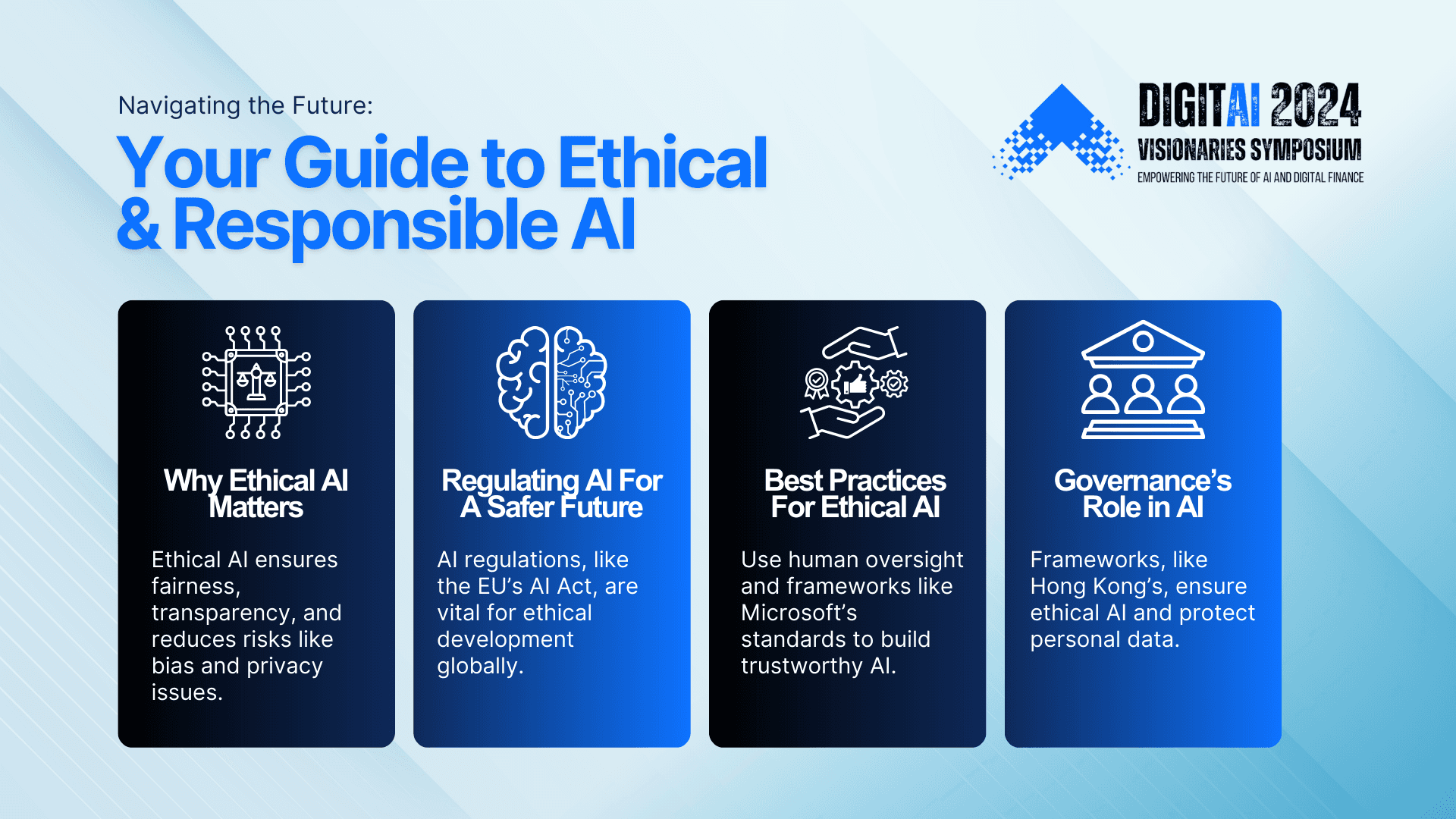Ethical AI Tools: Navigating the Future of Responsible AI Development

Estimated reading time: 8 minutes
Key takeaways:
- Understanding AI bias and its effects on society.
- Strategies for developing ethical and transparent AI systems.
- Integrating ethical considerations into AI from design to deployment.
- The importance of accountability and transparency in AI.
Introduction: The Necessity of Ethical AI Tools
As artificial intelligence (AI) becomes increasingly integral to our everyday lives, influencing decision-making across sectors from healthcare to finance, the emphasis on ethical AI tools and responsible AI development has never been more critical. AI systems that are fair, transparent, and accountable are essential, not only for their functionality but for their impact on society and individual lives. In this article, we explore the significance of developing AI responsibly and the practical steps needed to address the ethical challenges AI poses.
Understanding AI Bias: Definitions and Consequences
AI bias refers to the systematic skew in AI systems that leads to unfair results, such as discriminatory outcomes against certain groups. This bias can originate from various sources, including biased training data, flawed algorithmic design, or pre-existing human prejudices incorporated during development. The impact of such biases can reinforce societal inequalities in critical sectors such as employment, finance, healthcare, and legal systems, making it paramount to understand and address these biases actively. Learn more about the sources and impacts of AI bias here.
Strategies to Reduce AI Bias: Implementing Fairness
Reducing bias in AI systems involves multiple strategies:
- Diversify Training Data: Ensure data sets are representative of all demographics to avoid historical biases.
- Apply Algorithmic Fairness Techniques: Adjust algorithms to compensate for potential biases.
- Conduct Regular Audits: Continuous monitoring to detect bias in AI operations.
- Include Diverse Teams in AI Development: Diverse development teams can offer varied perspectives and help reduce unconscious biases.
Each of these strategies not only aids in creating fairer AI systems but ensures that the AI operates under mindful governance, meeting broader ethical standards explored here.
Principles of Responsible AI Development
Responsible AI development anchors on several core principles to guide ethical AI production:
- Fairness & Non-discrimination: AI systems must avoid biases that disadvantage any group.
- Transparency & Explainability: AI decisions should be understandable and accountable.
- Privacy & Security: Protecting the data AI systems utilize and ensure their security.
- Accountability: Assign responsibility for AI behavior and its outcomes.
- Safety & Robustness: AI systems must be safe and capable of handling unexpected situations.
These principles form the backbone of ethical AI, necessitating strong engagement from all stakeholders and clear governance frameworks, such as AI ethics boards. More on these principles can be found on Transcend’s AI ethics blog.
Implementing Fair AI for Decision Making
Practical implementation of fair AI involves several steps, from the design phase to deployment, including:
- Ethics by Design: Integrate ethical considerations at the development stage.
- Human Oversight: Allow human interventions in AI decisions to catch and mitigate bias.
- Thorough Testing: Rigorous testing across various demographics to ensure unbiased outcomes.
Examples include the development of unbiased HR tools for diverse and fair hiring practices and fair lending algorithms in the financial sector. Explore these applications in greater detail here.
Ensuring Transparency in AI Systems
Transparency in AI is crucial for building trust and accountability. Methods to enhance transparency include:
- Explainable AI (XAI): Techniques that make AI decisions understandable to end-users.
- Interpretable Models: Models that provide clear insights into their operating mechanisms.
- Comprehensive Documentation: Detailed records of data, architecture, and decision-making processes.
Transparent AI systems allow stakeholders to evaluate the fairness and effectiveness of AI applications, fostering greater acceptance and trust. Delve into the methods and benefits of transparent AI systems here.
Case Studies of Ethical AI Applications
From healthcare diagnostics to recruitment and banking, ethical AI tools are making significant strides. For instance, diagnostic tools are being developed to reduce racial bias in medical treatment, and AI-driven hiring algorithms are designed to enhance diversity in the workplace. These real-world applications demonstrate the transformative power of ethical AI practices, with detailed analysis available here.
Best Practices for Developing and Using Ethical AI Tools
Adopting ethical AI involves:
- Establishing Ethical Principles and Governance: Define clear ethical guidelines and frameworks.
- Conducting Impact Assessments: Evaluate the potential societal impact before deployment.
- Continual Monitoring and Auditing: Ensure AI systems perform ethically throughout their lifecycle.
Organizations are encouraged to integrate these practices to foster responsible AI development outlined here.
Future Trends in Ethical and Transparent AI
The landscape of ethical AI is rapidly evolving, with emerging trends such as:
- Advanced Explainable AI Techniques
- Regulatory Frameworks for AI Governance
- Educational Integration of AI Ethics
- Real-time Bias Detection Tools
These developments indicate a robust future where ethical considerations are deeply integrated into AI systems, reshaping how industries operate and how AI impacts our world. Stay informed on these trends through resources like Transcend’s AI ethics blog.
Conclusion: Embracing Ethical AI for a Better Tomorrow
Ethical AI tools and responsible AI development are not just technical requirements but are foundational to ensuring the equitable, transparent, and beneficial use of AI. As we continue to integrate AI into various facets of human activity, committing to ethical practices is imperative. By fostering an environment of fairness, accountability, and transparency, we pave the way for AI technologies that reinforce rather than undermine societal values and individual rights, laying a strong ethical groundwork for the future. Through shared responsibility and proactive engagement, we can collectively ensure that AI serves humanity positively and justly.
Ethical AI is essential for leveraging the immense capabilities of AI while mitigating its risks and ensuring a prosperous, fair, and transparent future for all.
Internal Links:




